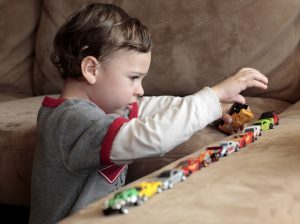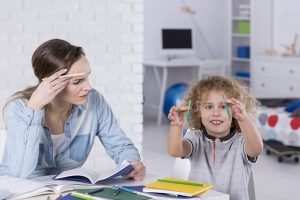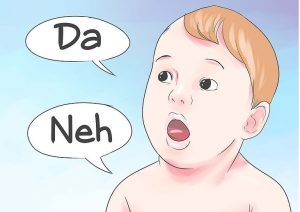
Autism spectrum disorder (ASD) is a developmental disorder which affects the child at their developing age and stays for the lifetime. In ASD the child is said to have a hard time interacting with others. But having a hard time interacting with others cannot only be the Autistic symptoms. The signs and symptoms of autism are vast than our thoughts. Every autistic child/adult is different and they show their unique behavior which is different from the normal people which we call it “Signs and symptoms of Autism”.
If you need any assistance or have a question about Signs & Symptoms of Autism, you can consult our HearingSol experts with your problem, feel free to call us on +91-9327901950. We are always here to help you.
When you have an Autistic child, it becomes your responsibility to bring life to your children which they are unable to find by themselves. Determining the signs and symptoms of autism in your children at its earliest can make a huge difference. You can reduce the severe symptoms of Autism to mild with the help of various treatment and therapy so your child could learn, grow, and succeed.
Why Is It Important To Learn About The Signs And Symptoms of Autism?
As being parents it’s very important for you to be assured about the wellbeing of your child whether they are having any symptoms of autism or not. Which is impossible to spot without the knowledge of the signs and symptoms of Autism. Signs and symptoms of Autism is the topic of which each and every individual should be aware of.
An autistic could be present in your child’s school, in your neighbor, and even in your family. Being a normal individual you should be aware of the responsibilities to treat an autistic. Determining the signs of autism helps you to identify the autistic person so you could provide the required help to them.
Autism is not any diseases which need to be treated, its a developmental disorder which require extra care and understanding that the normal human beings. By learning the ways to deal with an autistic person you can create an environment for them where they could grow and enjoy their life. But first, you need to identify them as they show very unique signs and symptoms of autism according to their age, gender, and ethnicity.
Some of The Early Autistic Symptoms In Babies Upto 0 -2 Years Old
It’s difficult to find any early signs and symptoms of ASD in babies as the babies don’t do much. Some common ways to find signs and symptoms of ASD in children are their social development, communicating the difficulty and repetitive actions but babies are too young to show these signs. But there are some ways which can indicate that your baby is showing the signs of autism and they are,
- They do not respond to their name or any facial expression
- I could just speak only 2-3 words by the age of 2.
- Clumsy and slow developmental activities.
- Do not babble or produce the baby sounds.
- Don’t point out the objects or show any desires.
- Do not imitate your facial expressions.
- Avoid eye contact.
- Do not initiate or respond to the cuddling.
How To Distinguish Between Child With Autism And Typically Growing Child?
At 12 months
- A typically growing child will respond to his name when being called.
- A child with ASD will not respond to his name and gets irritated if asked again and again.
At 18 months
- A typically growing child will use gestures and point to objects.
- A child with ASD will not use these gestures.
At 24 months
- A typically growing child will bring a toy or any picture to show to his mother and shares the joy with her.
- A child with ASD may bring a picture to his mother but will not look to her face when she wants to share the happiness.
Some Of The Autistic Symptoms In Children Up To 10 Years
As the child starts growing the signs and symptoms of ASD increases from mild to severe condition. The signs of autism in elder children(school-age children) are more visible as they show their discomfort in a particular environment and it can be vulnerable. Some of the signs and symptoms of ASD in children are given below:
- Impaired social skills like, disapprove handshaking, eye contact, and any physical meet or touch.
- Unable to make friends of their own age and prefer to stay alone.
- Speech and language difficulty along with incapable to write sometimes.
- Fussy eating behavior and robotic walk
- Unable to understand feelings and trouble in expressing them.
- Speaks too less either in an abnormal tone or in a flat voice.
- They don’t understand simple directions, questions or statements, and sarcasm.
- Unusual mood and emotional reaction.
- It’s difficult for them to adopt any changes either in route or environment.
- They keep moving or repeat an action over and over again, some researchers believe that these movements soothe the child with autism.
The common repetitive behaviors of the child with ASD is

- Hand flapping
- Rocking back and forth, rhythmic movements
- Spinning in a circle
- Finger flicking, Headbanging
- Staring at lights, Spinning objects or wheels
- Moving fingers in front of the eyes
- Snapping fingers
- Tapping ears
- Toe walking
- Scratching on tables with some sharp objects
- Lining up toys always in the same manner
- Switching on and off the lights switch
- Repeating noises or questions before answering them.
The lacking social development in the child with ASD is

- lack the intuition about others
- Unable to understand the social and emotional discussion
- They respond lesser to the social stimuli like a smile, less eye contact and turn to take
- Inability to express themselves either by movements or words
- The child will not imitate and respond to the emotions
- They communicate nonverbally and take turns with others
- They are highly attached to their primary caregiver.
- Adults with ASD perform worse in recognizing face and emotion
- They are very selective about food, clothes, toys, and other stuff.
- A person with Severe ASD suffers more intense and frequent loneliness, despite the desire of staying alone.
- It’s difficult for them to make and maintain friendships
- Very rare cases of ASD individuals are associated with aggression, destruction of materials, and tantrums.
The rare communicating habits of the child with ASD
 Child/Adult with autism commonly is unable to express there feeling in words and by movements as they are incapable to understand their own feeling. But in very rare cases like one third to the half of the autistics don’t develop natural speech to communicate. They share their feelings and express their needs through very rare communicating habits and they are as given below,
Child/Adult with autism commonly is unable to express there feeling in words and by movements as they are incapable to understand their own feeling. But in very rare cases like one third to the half of the autistics don’t develop natural speech to communicate. They share their feelings and express their needs through very rare communicating habits and they are as given below,
- Delayed babbling than the regular child
- Unusual gestures like repeating words
- Diminished responsiveness, and
- Vocal patterns that are not synchronized
- They use reverse pronouns while communicating like point themselves by he, she, and even by their own name.
- They show Joint attention i.e. they will stare at your pointing hands rather than the pointed object.
- Over-responsive to the loud noise.
- Poorer sibling relationship.
Physical and Medical Issues
- Seizure disorder relates to uncontrolled electrical activity. These are hereditary.
- Sleep dysfunction changes the way in sleep and creates abnormal patterns in breathing.
- Down’s syndrome, a genetic condition or cause for learning and physical disabilities.
- Neurofibromatosis, a generic term for which tumors grow on the nerves.
- And other mental health disorders like trouble with maturity (a changeover to adulthood).
Signs Of Autism In Adults
- Delay in language as they have speech developmental disorder.
- Speaking patterns are unusual like speaking in a high-pitched voice or a flat tone.
- May not respond to his/her name and doesn’t seem to understand what people are saying to him/her.
- Focuses on the single point of an object like a wheel of an object.
- Plays with a toy in an unusual way like sequencing them in a certain order.
- Involves in self-injury such as hitting or herself.
- May underreact to some kind of pain and overreact to another kind of pain. For example- doesn’t notice or react to deep wound but cover her ears to resist loud noise.
For more info: Autism in Adults
Along with these developmental disorders a person with autism has great talents too, which is advanced in comparison to the general population. Like they have great memorizing power i.e the memorization of trivia which is extraordinarily rare talents. And they have superior skills in perception and attention relative to general people.
Autism might degrade the developmental qualities of the autistic child but yet every child is pure and loving by heart. As you have gone through many signs and symptoms of Autism spectrum disorder(ASD) you are likely to understand and cooperate with autistic behavior.
Accept them and the autistic culture for their development. They might are unable to understand their own feeling but we are capable to respond to ours as well as their feelings too. So, provide them with care, understanding, and build a better place where they could live, learn, and grow.
If you need any assistance or have a question about Signs & Symptoms of Autism, you can consult our HearingSol experts with your problem, feel free to call us on +91-9327901950. We are always here to help you.

